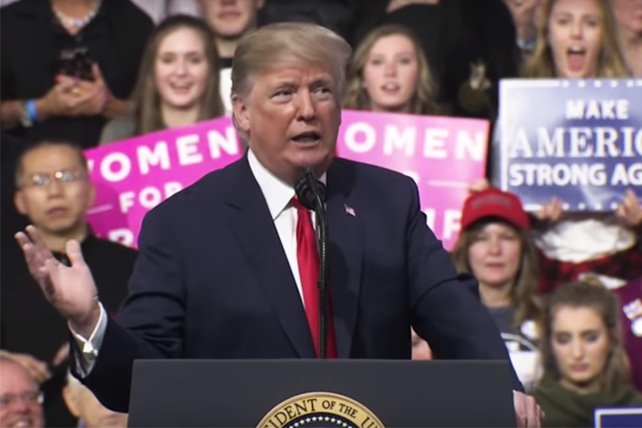A man has been executed, and another faces imminent execution, for drug offences in Singapore – days after President Trump endorsed the country’s execution of people for drug trafficking.
In late February, a White House official described Singapore's drug policy as “the holistic approach that approximates what this White House is trying to do”, and stated that US President Donald Trump is interested in his country adopting Singapore's approach of executing people for certain drug offences. Within days, a 39 year-old Ghanaian man Billy Agbozo was abruptly hanged in Singapore for illegally importing methamphetamine into the country. This was the country’s first execution for a drug offence since July 2017.
On March 10, in a highly publicised rally speech, President Trump described a conversation with the president of Singapore. "He said 'We have a zero tolerance policy. That means if we catch a drug dealer, death penalty,'" he said to applause, "And they [Singapore] don't have a problem".
Just two days later, Singaporean authorities told the family of 54 year-old Hishamrudin Bin Mohd that his execution for supplying heroin would be taking place in four days’ time, on Friday 16 March. Bin Mohd was sentenced in July 2016, but an execution date was never set – providing hope to him and his family that he could successfully appeal the sentence or receive clemency. Reasons are unclear for why the Singaporean government abruptly decided to execute him and Billy Agbozo, but support from the President of the United States may have played a role.
Singapore has some of the strictest drug laws in the world. Under Section 17 of the country’s Misuse of Drugs Act, anyone found possessing a quantity of heroin over two grams “shall be presumed to have had that drug in possession for the purpose of trafficking”. Section 2 of the Act states that trafficking over 15 grams of heroin must be punished by a mandatory death sentence.
Judges have the discretion to not impose the death sentence for such offences, but only under certain conditions outlined in the Act’s Section 33B. Judges can impose a life sentence instead, but only if the court believes the person was acting as a courier (rather than having deeper involvement with the drug trade), if the person "has substantively assisted the Central Narcotics Bureau in disrupting trafficking activities", or if the person was suffering from an "abnormality of mind" that impaired their mental responsibility.
In the case of Hishamrudin Bin Mohd, who was found with a total of 38.5 grams of heroin in his car and home, the death penalty was imposed mandatorily – without judicial discretion – because he did not claim mental impairment, and he was shown to have had a potentially lucrative role that was beyond that of a courier. Instead, Bin Mohd had disputed the prosecutors’ allegations, and claimed he was framed by authorities. He argued that police officers assaulted him, that evidence was tampered with, and that the heroin in his car was planted by someone else. The judge did not accept his arguments, and sentenced him to hang in the country’s notorious Changi Prison.
Amnesty International has called on the Singaporean government to "immediately halt plans to carry out the execution of Hishamrudin Bin Mohd … [and to] establish an official moratorium on executions". As TalkingDrugs has previously reported, Singapore is one of five countries which continue to execute people regularly for drug offences – despite this being a violation of international law.


